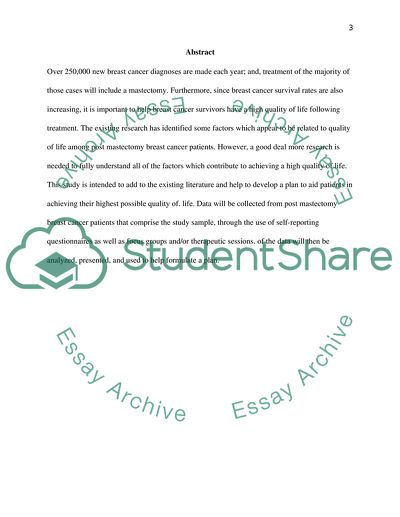Cite this document
(Quality of Life in Women with Breast Cancer Post Mastectomy Research Paper, n.d.)
Quality of Life in Women with Breast Cancer Post Mastectomy Research Paper. Retrieved from https://studentshare.org/social-science/1750373-quality-of-life-in-women-with-breast-cancer-post-mastectomy
Quality of Life in Women with Breast Cancer Post Mastectomy Research Paper. Retrieved from https://studentshare.org/social-science/1750373-quality-of-life-in-women-with-breast-cancer-post-mastectomy
(Quality of Life in Women With Breast Cancer Post Mastectomy Research Paper)
Quality of Life in Women With Breast Cancer Post Mastectomy Research Paper. https://studentshare.org/social-science/1750373-quality-of-life-in-women-with-breast-cancer-post-mastectomy.
Quality of Life in Women With Breast Cancer Post Mastectomy Research Paper. https://studentshare.org/social-science/1750373-quality-of-life-in-women-with-breast-cancer-post-mastectomy.
“Quality of Life in Women With Breast Cancer Post Mastectomy Research Paper”, n.d. https://studentshare.org/social-science/1750373-quality-of-life-in-women-with-breast-cancer-post-mastectomy.


